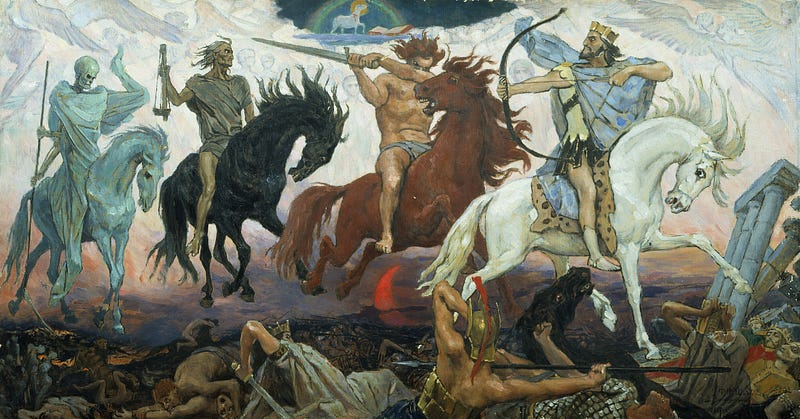The Dynamics of Prophecy and Its Impact on Belief Systems
Written on
Chapter 1: The Role of Prophecy in Religion
Prophecies play a crucial role in various myths and religious stories, yet in contemporary society, they are often met with skepticism. This skepticism likely stems from the numerous prophecies that do not come to fruition. However, this raises an intriguing question: why do some individuals persist in their belief in prophecies despite their frequent failures?
A prominent illustration of this phenomenon can be found among the so-called "millenarians," who anticipate the second coming of Christ as depicted in the Book of Revelation. Since its composition around 95 CE, numerous interpreters have attempted to predict the timing of these prophetic events, and all have ultimately been incorrect. Bart D. Ehrman, in his work What the Bible Really Says about the End, observes that these repeated disappointments rarely lead to disillusionment. Instead, groups often "reset the date" and intensify their convictions. Similarly, Ian Balfour notes in The Rhetoric of Romantic Prophecy that prophecy is seldom fulfilled in a clear-cut manner; the texts can be adapted and reinterpreted endlessly, making the lack of immediate fulfillment a key element of the prophetic tradition.
This pattern is evident among followers of Revelation, who consistently find signs pointing to an impending end.
But what relevance does this hold for the general populace? Ehrman points out that even if the Bible does not forecast future events, many Americans believe it does, and this belief can significantly influence political decisions. A striking example of this is the Evangelical backing for the state of Israel.
In a recent survey by Lifeway Research, approximately 80 percent of evangelicals expressed the belief that the formation of Israel fulfills biblical prophecy, suggesting we are nearing the second coming of Christ. This stems from the notion that, according to Revelation, Jesus cannot return until Israel gains full control over the Temple Mount. Consequently, support for Israel's expansion into Palestinian territories is seen as non-negotiable, as it aligns with the promises made to Abraham.
Section 1.1: The Interplay Between Prophecy and Politics
The belief in prophecy undeniably influences political stances. The expectation that Israel must reclaim certain territories, including the destruction of the Dome of the Rock to rebuild the temple, is seen as essential for the anticipated "end" to materialize.
Subsection 1.1.1: Predictions as Self-Fulfilling Prophecies

Chapter 2: The Neuroscience of Expectations
The influence of prophecy extends beyond policy; there is a growing body of evidence suggesting that predictions, in general, can shape our reality. Two noteworthy publications — The Experience Machine by Andy Clark and The Expectation Effect by David Robson — argue that our expectations can create self-fulfilling prophecies that alter our experiences.
Neuroscientists are increasingly describing the brain as a "prediction machine," which constructs a complex simulation of the world based on expectations and past experiences, in addition to the sensory information it receives. For most individuals, these simulations align with objective reality, but they can sometimes deviate significantly from the actual physical world.
Moreover, beliefs regarding the effects of anxiety can modify an individual's physiological responses to stress, impacting both immediate performance and long-term mental and physical health. Self-fulfilling prophecies, whether positive or negative, can influence memory, concentration, stamina during challenging tasks, and even creativity in problem-solving. Interestingly, even a person's intelligence, once thought to be a fixed trait, can fluctuate based on their expectations.
The expectation effect elucidates why placebos can be remarkably effective. It may also clarify why prophecies are often resistant to disproof: instead of our predictions adjusting to align with outcomes, the outcomes may instead be shaped by our predictions.
We find ourselves in a scenario akin to that of Lord Asriel in His Dark Materials. We cannot simply dismiss prophecies as mere "stories crafted to manipulate the gullible," as they tend to become self-fulfilling regardless of their truth.
